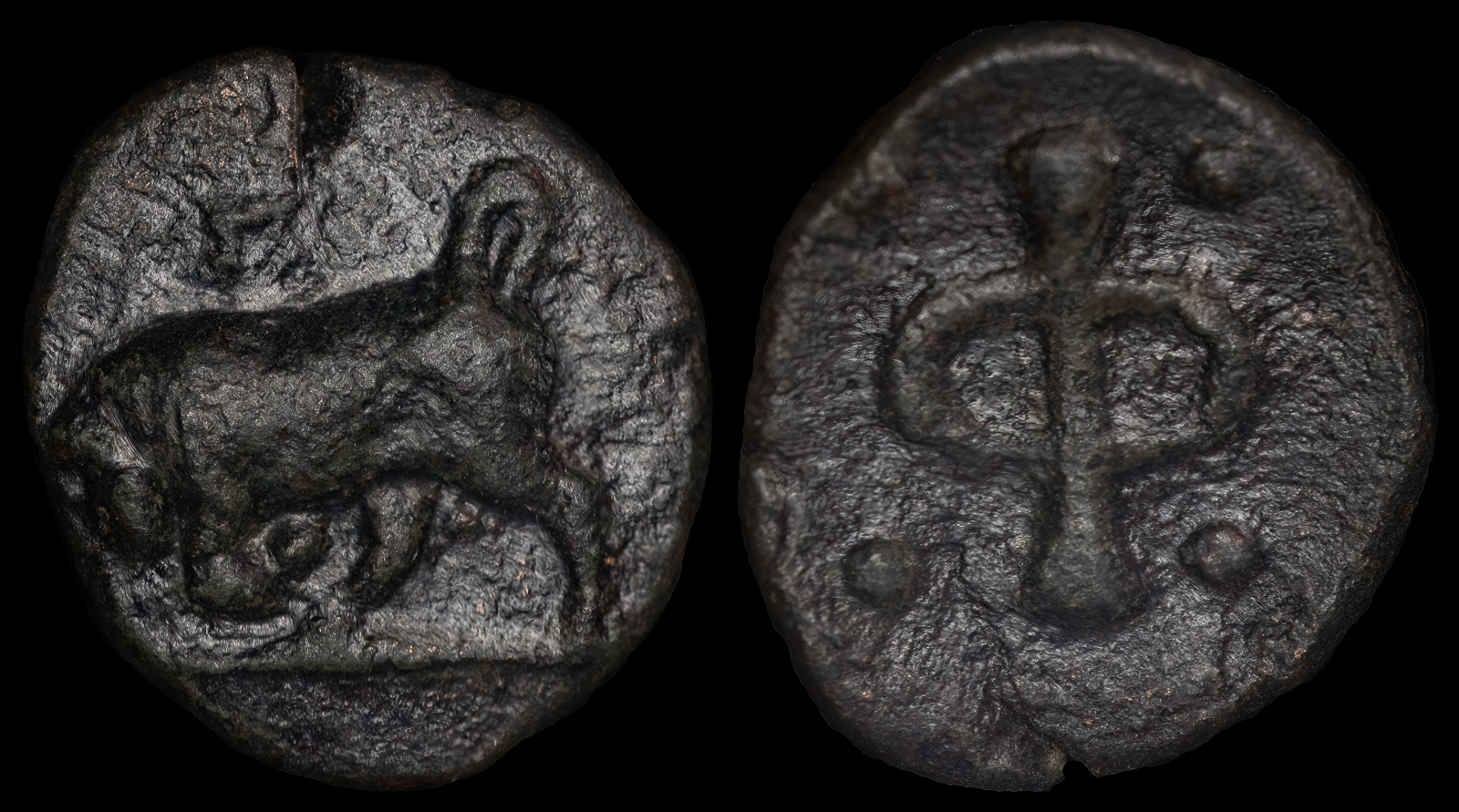
Phliasia, Phlious
Circa 400-350 BCE
AE 14.09mm 1.25g
Obverse: Bull butting left
Reverse: Large Φ surrounded by four pellets
BCD Peloponnesos 107
Ex BCD Collection
Ex 1985 Frank Kovacs
Much of the history of Phlious involves a constant dispute between democratic and oligarchic factions. Although a consistent ally of Sparta, the latter city rarely forced its brand of government on them.
Phlious was a relatively small city, with roughly five thousand men of fighting age. Yet the exiles of whichever faction was not in power often induced Sparta to intervene on their behalf.
The city often suffered from invasions by Athens, Thebes, and Sikyon that were generally intended against their more powerful neighbor, Sparta. However, they remained remarkably steadfast in support of the Lakedaimons.
Phlious was the birthplace of Pratinas, who was a famed playwright who competed against Aeschylus and who was credited with separating satiric from tragic drama. Only fragments of his work are preserved.
The Battle of Thermopylae. Soldiers from Sparta, Mantinea, Tegea, Orchomenos (Arkadia), Corinth, Phlious, Thespiai, Phokis, Opuntian Lokris, and other cities are overrun by the Persians at a huge cost.
July
Sparta and their allies, including Sikyon and Tegea, defeat Athens and their allies at the Battle of Nemea. On Athens side are Thebes, Lokris Opuntii, and Corinth. With Sparta are Halieis, Sikyon, Epidauros, Troizen, and Hermione. Phlious remains neutral. Pellene fights on the side of Sparta against Thespiai.
Iphikrates of Athens defeats Phlious.
Phlious accepts exiles from their city under threat from Sparta.
Agesilaos of Sparta lays siege to Phlious.
Sparta finally takes Phlious after a siege of 20 months, resets the government, and creates a new constitution.